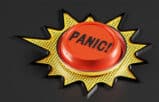Get to the Point repeatedly suggests that your speech and particularly your writing can probably improve through the use of words packed with meaning. Word games can help expand your vocabulary.

Table of contents
Downtime Is Time for Word Games
What do you do when you are sitting around waiting for something to happen? You can check and respond to email and texts if the message and response are simple. Perhaps you can access some reading material, but the surroundings may not be conducive to concentration. Time may not be adequate for a deep dive into a pleading or review of research.
Whether it’s sitting in a courthouse corridor or in a parking lot waiting for your kids, you might wile away the time with a game. So why not choose a game that will improve your communication skills?
The One Everyone Talks About
The New York Times gratuitously publishes daily word quizzes. Wordle is a national obsession for a quarter-million people every day. If somehow you have dodged this phenomenon, here is a short explanation. The game is like an electronic version of the playground game Hangman for just one player. Players guess at a five-letter word by typing a five-letter word into a grid. A correct letter in the correct space appears as a white letter on a green background. A correct letter in the wrong space appears as a white letter on a tan background. Wrong letters are shown as white letters on a charcoal gray background. A player has six tries to get it right.
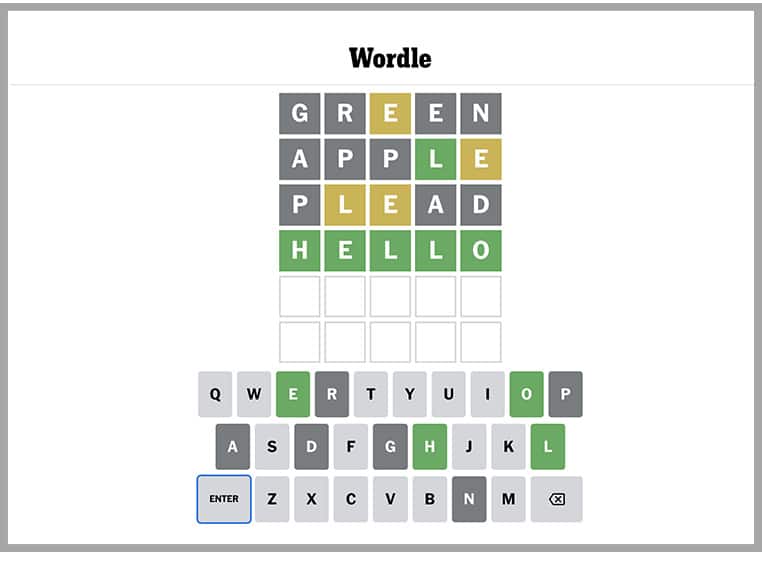
Wordle is such a popular game other online publishers have created their own versions. CBS created a television version, Lingo, hosted by RuPaul.
The New York Times also publishes Spelling Bee, where the player has to assemble from seven displayed letters as many words as possible of at least four letters. The letters appear as a honeycomb and every word must include the center letter. Letters can be reused. A word that uses all seven letters is a Pangram, a game beloved by late-night television host Seth Myers. A pangram is actually a sentence that uses every letter of the alphabet, like “The quick brown fox jumps over the lazy dog.” Spelling Bee stops once your play is graded in a range from Good Start to Genius depending on the length of your words.
More Than The New York Times
You probably know Merriam-Webster for its dictionary and perhaps for its clever social media posts. Their Word Game & Quizzes site includes multiple games you don’t need to feel guilty about playing.
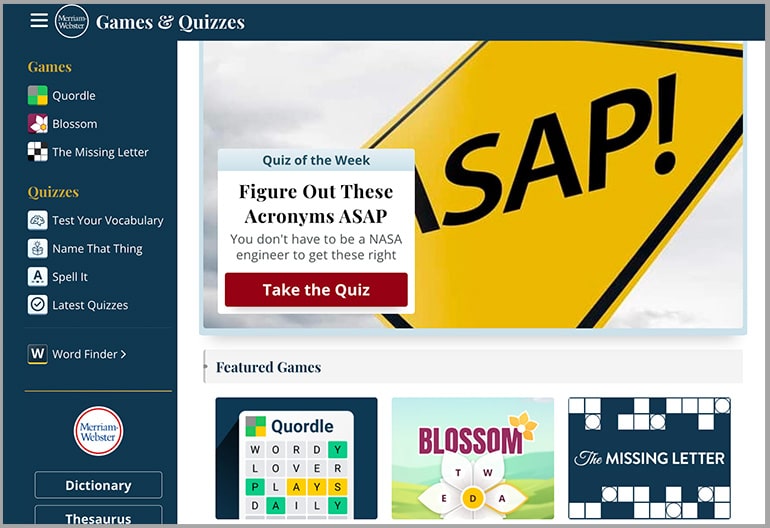
The Merriam-Webster quiz most likely to help your vocabulary is How Strong Is Your Vocabulary? The game requires the player to identify synonyms that are not always obvious. This game may make you think about using words in a new way.
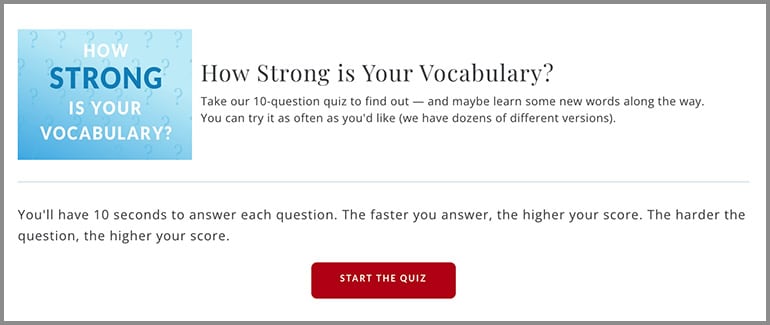
Unlike some other word games, the vocabulary game is quick. Not only must the player correctly answer 10 questions, but provide each answer within 15 seconds. The faster you answer, the higher your score. Confession: With every question correctly answered, I have never scored higher than 3,960 out of a possible 4,200.
Are you a die-hard Wordle fan? Merriam-Webster challenges you to play four boards at once. Blossom is similar to Spelling Bee. One difference is that you get extra points for using the letter outlined in yellow, which changes after each use. Unlike Spelling Bee, to complete the game you create 12 words and rack up a total numeric score.
Name That Thing is another Merriam-Webster game that can introduce you to words not in your usual vocabulary. Spell It challenges you to correctly spell what you hear — but make sure you have your earbuds in when you play in a public setting. Some potentially helpful games, like Challenging Words You Should Know, are not regularly updated.
Don’t Get Carried Away With Word Games
No question about it. Smartphone games can be a major time-waster. Your device’s app store undoubtedly offers many more word games, but between The New York Times and Merriam-Webster, you probably have enough for the purpose.
These games reputedly challenge your brain and possibly improve cognitive function. They can definitely relieve boredom and provide a temporary distraction from stressors. Just remember to observe a daily time limit for your playtime.
Word games can introduce you to new words and definitions. Think how much smarter you’ll sound — and you can attribute your eloquence to play.
Photo by Joshua Hoehne on Unsplash
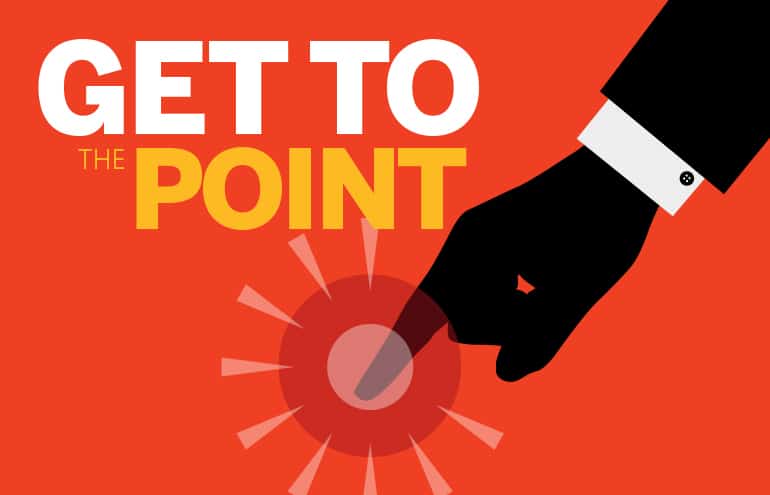
More Writing Tips
Find more good ideas for improving your legal writing and communications skills in “Get to the Point” by Teddy Snyder.
Subscribe to Attorney at Work
Get really good ideas every day for your law practice: Subscribe to the Daily Dispatch (it’s free).
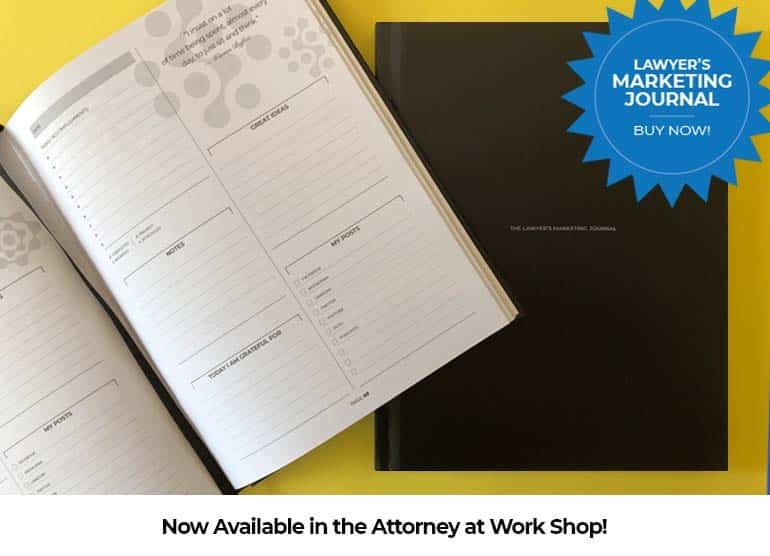
Lawyer’s Marketing Journal
Teddy Snyder, author of Women Rainmaker’s Best Marketing Tips, has designed a journal that is ideal for tracking marketing and BD activities, ideas and inspiration. Undated pages give you the flexibility to start today.










